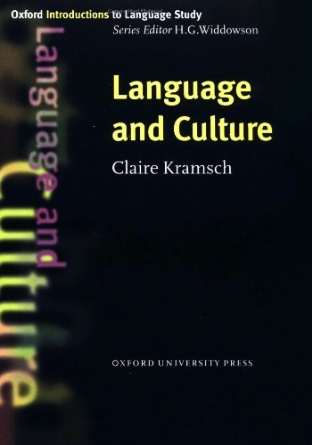Language and Culture by Claire Kramsch

Language is the most important component of culture. It is the thing which enables people to lead an active social life. There is a complex and multifaceted connection between the language we speak and the culture we live in, the essence of which Claire Kramsch, a professor at Berkeley University, reveals to the reader in her manual. In eighty pages Kramsh managed to tell about the attitude of language and culture, various theories and views on this topic.
The manual starts with reasoning about what language, culture, society and nature are. Familiar terms turn out to be much more multidimensional. The author describes in a very sophisticated manner their connection using the poem by Emily Dickinson:
Essential Oils — are wrung —
The Attar from the Rose
Be not expressed by Suns — alone —
It is the gift of Screws —
The General Rose — decay —
But this — in Lady's Drawer
Make Summer — When the Lady lie
In Ceaseless Rosemary —
The Attar from the Rose
Be not expressed by Suns — alone —
It is the gift of Screws —
The General Rose — decay —
But this — in Lady's Drawer
Make Summer — When the Lady lie
In Ceaseless Rosemary —
The rose here symbolize nature. It is beautiful but blank, while culture is a force that is capable to "squeeze" something really worthwhile out of nature, an "ethereal" linguistic symbol. The poem shows the impossibility of one existing without the other.
By using allusions and metaphors, references to literature and mass culture, Claire Kramsh gives answers to questions about culture and language: what is a symbol? How is the meaning of words and phrases realized in a social context? Who are the participants in communication and what are their roles?
The book covers contemporary problems of intercultural communication. It is said that the language of a social group reflects its identity. With the help of emphasis, choice of words and model of discourse, the speaker identifies himself with a community, out of which draws strength and pride, a sense of belonging. However, such identification with a social group can cause certain complexities, such as stereotyping, racism, and linguistic nationalism. The author also addresses rather controversial sociological issues of tolerance and empathy, relevant to modern society problems.



